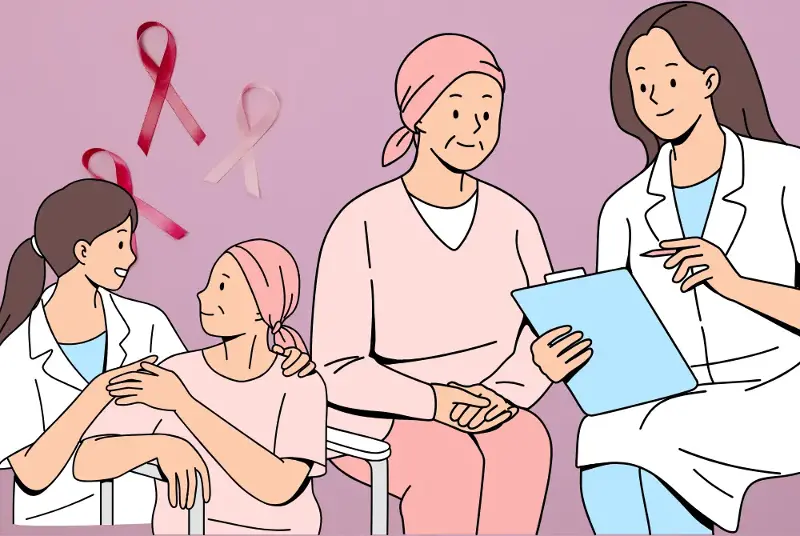
Women continue to lag behind in early breast cancer detection, largely due to fear and shame, as the disease involves sensitive areas of the body.
This stigma, combined with the discomfort of screening procedures, has left many women hesitant to seek medical help, an issue that must be urgently addressed, says Tun Dr Hasmah Mohamad Ali.
"There are many reasons women avoid getting screened. One major factor is the mammogram itself. Women are afraid because it’s so uncomfortable, especially for those with either too much or too little breast tissue, as the process requires the breast to be flattened like 'apam balik'.
"Another factor is shame. Women feel embarrassed because breast cancer involves private parts, but this fear must be overcome. Early detection can save lives," she said while sharing her experience as a breast cancer survivor.
Tun Hasmah also highlighted that many women prefer female doctors due to the intimate nature of breast cancer examinations. This preference can lead to delays if female doctors are unavailable.
“Women are very choosy and prefer female doctors because they feel shy to expose themselves to male doctors. But if a male doctor is the only option, I urge women not to let their shyness stop them. He is just a professional doing his job. Do not let shame or fear deter you from getting the help you need," she added.
She also shared her personal experience of being diagnosed with breast cancer in 2019 while on an official trip to Manila.
"Pain was my first symptom. It was so unbearable that I immediately booked an appointment upon returning to Malaysia. My husband, Tun Dr Mahathir Mohamad, didn’t even know about it at the time," she revealed.
Prince Court Medical Centre Consultant Breast and Endocrine Surgeon Dr Harjit Kaur pointed out the terrifying reality of breast cancer: it is often painless in its early stages. This lack of symptoms leads many women to delay screenings, only seeking help when it is too late.
"Breast cancer is often silent. By the time a lump becomes painful, it’s usually already advanced. That’s why early detection is key. Regular mammograms and ultrasounds can catch the disease in its early stages. Ultrasounds are painless, quick and simple, making them an excellent option for annual screening," she said.
Dr Harjit added that breast cancer knows no age limits.
"It’s not just older women who are affected. Younger women and even girls are being diagnosed with breast cancer today. Screening is crucial for everyone," she added.
Tun Hasmah acknowledged that her journey was a fortunate one because she experienced pain—a symptom that pushed her to seek help early.
She also advocated for advancements in mammogram technology to make the process more comfortable.
“The equipment must be improved to reduce discomfort. This would encourage more women to undergo regular screenings," she said.
According to her, the stigma surrounding breast cancer must be eradicated and the conversation about early detection must be normalised.
“We need to educate women about the importance of regular check-ups and screenings,” said Tun Hasmah.
“Fear and shame have no place in the fight against breast cancer. Lives are at stake," she said.
Dr Harjit echoed this sentiment, emphasising the importance of early intervention.
"You can’t avoid breast cancer if it’s meant to happen, but you can catch it early and improve your chances of survival. Screening is the only way forward," she said.
